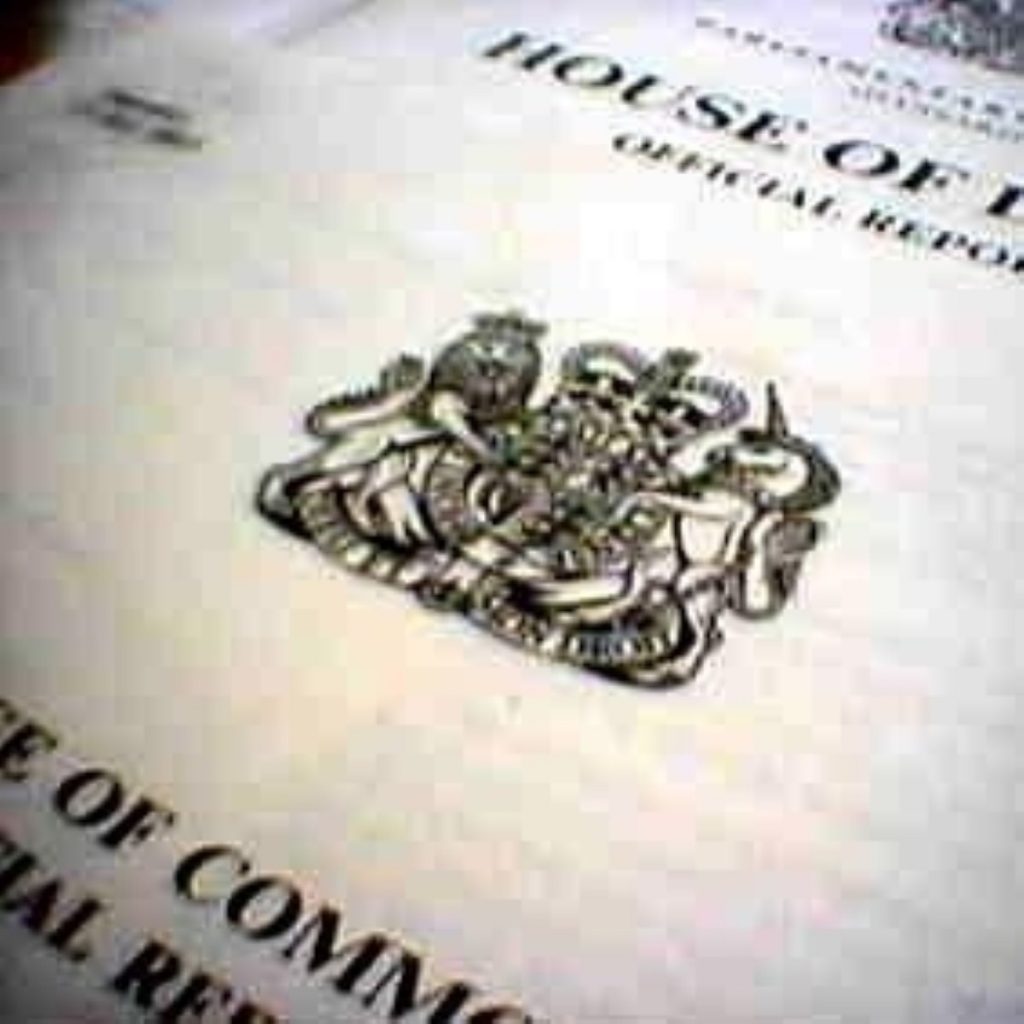Uncertainty surrounds future of Civil Partnership Bill
The future of the Government’s Civil Partnership Bill, which was designed to improve the rights for same sex partners, is in doubt.
It aimed to allow same sex partners who register their relationship social security and property rights, such as exemption on inheritance tax.
Last night the House of Lords passed a backbench Conservative amendment to allow close members of the same family to form civil partnerships with each other.
The amendment was tabled by Baroness O’Cathain, and passed by a coalition of crossbench Bishops and Conservative backbenchers.


She argued that, if the Bill were genuinely intended to combat injustice, it would remove what she deemed to be the unjust treatment of, for example, a daughter who gives up work to care for her sick mother, but who has to pay inheritance tax on her estate.
Home Office Minister Baroness Scotland rejected the amendment, telling the Lords that, regardless of the merits of the argument for the amendment, the solution was ‘not this Bill.’
The Bill provided for responsibilities for civil partners, which would become somewhat perverse were the amendment to be agreed. It was aimed, she reminded the House, at ‘a relationship of choice between two adults who wish to commit their lives together.’
It was not a financial deal nor was it a tax avoidance scheme, the Minister argued.
The Conservative Party allowed a free vote on the issue, with the change carried by 148 to 130.
Baroness Scotland later informed the House that the Government believed the “whole nature of the Bill” had been altered fundamentally by the O’Cathain amendment.
As such, Ministers would not move the extensive government changes that had been tabled because they had been predicated on a certain definition of civil partnership that no longer obtained, she told peers.
Lords Chief Whip Lord Grocott added that Ministers would not speak to other amendment moved except to indicate their opposition.
The likely aim of this approach is to return the Bill to the Commons, where the definition of a civil party can again be changed to reflect a same sex couple in a committed relationship.
The Liberal Democrats denounced the amendments as “inconsistent with the purpose of the Bill which is to give legal recognition to partnerships between same-sex couples.
Lord Goodman, Liberal Democrat spokesman in the Lords, alleged: “These amendments are being used as a stalking horse by those whose real aim is to defeat the Bill.”
The Conservative spokesman on civil partnerships, and Shadow Secretary for Constitutional Affairs, condemned the Government’s tactics.
Alan Duncan said: “The Government’s behaviour in throwing their toys out their pram and refusing to participate in any discussion on other parts of the Bill or even to explain their own amendments to the Lords is astonishing and quite unprecedented.”
“We fully support the purpose of this Bill which is to extend the equivalence of marriage to same-sex couples. The amendment carried in the Lords does not remove any of the privileges and opportunities extended to same sex couples in this Bill. Instead, it illustrates the plight of other interdependent couples whose situation New Labour stubbornly refuses to address. Why won’t they?”
Stonewall chief executive, Ben Summerskill, said: “We’re desperately disappointed,”
“It’s a number of years since we have heard peers referring openly to ‘unnatural sexual practices’ and ‘hijacking’ of the word gay. Sadly, it suggests that making provisions for family carers was not the only motive for attempting to amend the Bill today.”
It suggests that there should be a separate Family & Domestic Partnership Bill to address the domestic needs of carers, arguing that combining the two would cause immense legal difficulties.
“The Civil Partnership Bill is urgently needed,” said Mr Summerskill. “It’s tragic that it may now be derailed. Just three months ago the Conservative Party held a gay summit but today more than 100 of their peers voted to frustrate this measure. We’re deeply saddened.”

